At What Point Should You Hire A Wealth Manager?
Key Takeaways
- You don’t need millions to hire a wealth manager—many firms offer services starting at $250,000 in assets.
- Wealth managers provide more than investment advice—they handle estate planning, tax strategy, retirement, and more.
- Signs you may need one include financial complexity, major life changes, or a sudden increase in wealth.
- Human advisors still play a vital role—especially for those needing personalized strategies beyond what robo-advisors can offer.
- Choosing the right wealth manager means looking at credentials, fee transparency, and how well they align with your goals.
Hiring a Wealth Manager: What It Costs and When It’s Worth It
Wealth management is a comprehensive financial service that goes beyond basic investment advice. It involves managing an individual's or a family's financial portfolio, including investments, estate planning, retirement strategies, and tax optimization. A wealth manager takes a holistic approach to ensure that financial goals are met while minimizing potential risks.
As financial situations become more complex, individuals with substantial assets often need specialized expertise to preserve, grow, and transfer their wealth. Here, we discuss specific life circumstances in which you may consider hiring a wealth manager.
When to Consider Hiring a Wealth Manager
Knowing when to engage a wealth manager can make a significant difference in protecting and growing your assets.
While some individuals manage their own investments successfully, others may reach a point where professional expertise becomes essential. Here are clear signs that it might be time to hire a wealth manager:
1. Increasing Complexity of Your Financial Portfolio
As financial portfolios grow, they often include a mix of assets such as stocks, bonds, real estate, private equity, and business interests. Managing these diverse holdings requires time, expertise, and a thorough understanding of market dynamics.
Wealth managers develop cohesive strategies to balance risk and reward across multiple asset classes.
They monitor and adjust portfolios to maintain alignment with long-term financial goals.
2. Approaching Retirement or Major Life Transitions
Significant life events, such as retirement, marriage, divorce, inheritance, or the sale of a business, often bring financial complexities that require careful planning. Without expert guidance, it's easy to overlook key factors that can affect long-term security.
Wealth managers help clients navigate these transitions with tailored financial strategies.
They optimize retirement withdrawals, manage pensions, and ensure that wealth is preserved for future generations.
3. Significant Wealth Growth or Inheritance
A sudden increase in wealth—whether through inheritance, business success, or investment growth—can present unexpected challenges. Managing newfound wealth requires careful planning to avoid unnecessary tax burdens and ensure sustainable growth.
Wealth managers provide strategic asset allocation and diversification to mitigate risk.
They offer estate planning solutions to preserve wealth and minimize tax liabilities.
4. Difficulty Managing Tax Strategies and Estate Planning
Tax optimization and estate planning are critical aspects of long-term wealth management. Without expert advice, high-net-worth individuals may face unnecessary tax burdens—such as higher-than-necessary capital gains taxes or overlooked opportunities for charitable deductions—or end up with ineffective estate plans that complicate wealth transfer.
Wealth managers identify opportunities to minimize taxes through tax-efficient investments and charitable giving.
They structure trusts and wills to ensure seamless wealth transfer while minimizing estate taxes.
How Much Money is Required for Wealth Management?
Wealth management services typically require clients to meet a minimum asset threshold. While requirements vary by firm, most wealth managers cater to individuals with investable assets starting at:
- Mass Affluent Clients: $250,000 to $1 million
- High-Net-Worth Individuals (HNWIs): $1 million to $5 million
- Ultra-High-Net-Worth Individuals (UHNWIs): $5 million and above.
5 Benefits of Hiring a Wealth Manager
Hiring a wealth manager can deliver meaningful value when your financial situation becomes more complex.
Their services go far beyond investment advice, offering comprehensive strategies to help you manage, protect, and grow your wealth over time. Below are five concrete benefits of working with a wealth manager:
1. Customized Financial Strategy
Wealth managers develop tailored financial plans based on your unique goals, lifestyle needs, and risk tolerance. They coordinate various elements such as investment planning, retirement goals, estate planning, and cash flow.
This unified approach ensures that each financial decision supports your broader objectives. Rather than offering one-size-fits-all advice, they align strategies to your personal circumstances.
2. Ongoing Portfolio Management and Oversight
A strong financial strategy requires ongoing attention, especially as markets shift and personal goals evolve. Wealth managers actively monitor and rebalance portfolios to maintain proper asset allocation and performance.
They also adjust strategies in response to changes in your life or the economic environment. This hands-on oversight helps reduce risk, optimize returns, and keep your investments aligned with your objectives.
3. Tax Efficiency and Wealth Preservation
Tax strategy is a core part of preserving and maximizing wealth. Wealth managers use techniques such as tax-loss harvesting, asset location, and charitable giving to reduce tax liabilities.
They also help structure trusts and estate plans to minimize taxes across generations. With proper planning, more of your wealth stays working toward your goals rather than being lost to unnecessary taxes.
4. Legal and Regulatory Compliance
Wealth managers ensure your financial decisions remain compliant with current tax laws, estate regulations, and investment policies.
They review key legal documents like wills, trusts, and account structures to keep them current and effective. Their awareness of potential legal risks helps clients avoid costly errors or disputes. This layer of protection supports long-term financial stability.
5. Objective, Professional Guidance
A wealth manager offers an informed, unbiased perspective during important financial decisions. They help clients stay disciplined, especially in volatile markets or emotionally charged situations like business transitions or inheritance.
Their guidance ensures decisions are made with clarity and consistency. With professional support, clients can navigate complexity with greater confidence and peace of mind.
Exploring 4 Specialized Wealth Management Services
Wealth management extends far beyond basic investment advice. It encompasses a range of specialized services aimed at preserving and growing wealth while ensuring that financial goals are met efficiently.
For individuals with complex financial needs, wealth managers provide a holistic approach by integrating
investment management, estate planning, charitable giving, and retirement security into a cohesive strategy. Below are the key specialized services offered by wealth managers.
1. Financial Planning and Tax Strategies
Effective financial planning includes smart tax strategies to grow and protect wealth over time. Wealth managers help reduce taxable income through tools like loss harvesting and tax-efficient investments. They also plan for intergenerational wealth transfer with minimal tax impact.
2. Estate Planning and Legacy Preservation
Estate planning helps ensure wealth is passed on smoothly and with minimal tax burden. Wealth managers structure wills and trusts to protect assets and maintain control over how they’re distributed. These strategies also help prevent legal issues and support legacy goals.
3. Philanthropic and Charitable Giving
Wealth managers help clients give intentionally and efficiently through charitable trusts and donor-advised funds. These tools offer immediate tax benefits and long-term impact for causes that matter. Strategic giving also supports estate planning and legacy goals.
4. Retirement Planning and Security
Planning for retirement means balancing income needs with long-term growth and stability. Wealth managers develop income strategies that consider Social Security, pensions, and required withdrawals. They also work to protect retirement savings from market risks and tax erosion.
What to Look for When Hiring a Wealth Manager
1. Credentials and Experience Matter
When selecting a wealth manager, credentials such as Certified Financial Planner (CFP) or Chartered Financial Analyst (CFA) indicate expertise and a commitment to ethical standards. Experienced wealth managers with a track record of managing complex portfolios are better equipped to handle sophisticated financial needs.
2. Fee Transparency and Fiduciary Duty
It’s essential to understand how a wealth manager is compensated. Fee structures may be based on:
- A percentage of assets under management (AUM)
- Flat or hourly fees.
Additionally, ensure that the wealth manager operates as a fiduciary, which means they are legally obligated to act in your best interest.
3. Communication and Personal Fit
Choosing a wealth manager who communicates clearly and understands your financial objectives is key. Look for someone who:
- Provides regular updates and performance reviews.
- Is accessible and responsive to your questions.
- Builds a relationship based on trust and transparency.
Conclusion: Making Informed Decisions About Wealth Management
Wealth management is a comprehensive approach to managing, growing, and preserving wealth across generations. For individuals with complex financial portfolios, significant assets, or unique financial goals, hiring a wealth manager can provide invaluable expertise and peace of mind.
If you’re uncertain about your next financial move, schedule a consultation with Boyce & Associates Wealth Consulting to provide the clarity you need. Professional guidance can make all the difference when planning for your financial future.
To get started, visit our website or schedule a consultation..
FAQs
What’s the difference between a financial advisor and a wealth manager?
A financial advisor primarily focuses on investment advice and retirement planning, while a wealth manager provides a more comprehensive service that includes estate planning, tax optimization, and legacy preservation. Wealth managers are better suited for clients with complex financial needs.
What fees should I expect when hiring a wealth manager?
Wealth managers typically charge a percentage of assets under management (AUM), usually ranging between 0.50% and 1.5% annually. Some may also offer flat fees or hourly rates depending on the scope of services provided.
Can wealth management help with tax reduction strategies?
Yes, wealth managers use advanced tax optimization strategies such as tax-loss harvesting, charitable giving, and structuring trusts to minimize tax liabilities. They ensure that clients’ investment portfolios are managed in a tax-efficient manner to maximize after-tax returns.
Disclaimer
Forward looking statements, estimates, and certain information contained herein are based upon proprietary and non-proprietary research and other sources. Information contained herein has been obtained from sources believed to be reliable but are not assured as to accuracy. Past performance is not indicative of future results. There is neither representation nor warranty as to the current accuracy of, nor liability for, decisions based on such information.
Risks: All investments, including stocks, bonds, commodities, alternative investments and real assets, should be considered speculative in nature and could involve risk of loss. All investors are advised to fully understand all risks associated with any kind of investing they choose to do. Hypothetical or simulated performance is not indicative of future results.
Investment advisory services offered through Boyce & Associates Wealth Consulting, Inc., a registered investment adviser. Boyce & Associates Wealth Consulting, Inc. has Representatives Licensed to sell Life Insurance in TX and other states.










